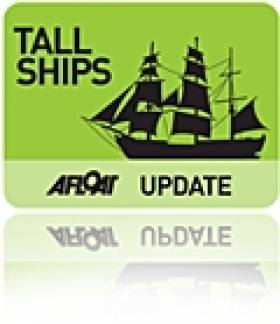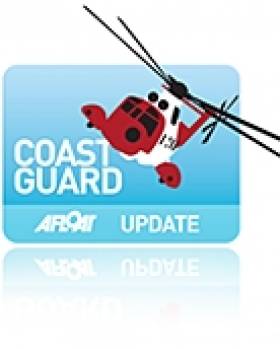Displaying items by tag: Clyde Coastguard
Tall Ship Refloated Off Scotland
As previously reported on Afloat.ie, the 100-foot-long Irene of Bridgwater, with 10 people on board, became stuck in Lamlash Bay on its way to port at Greenock - one of five ports on the route of the 2011 Tall Ships Races.
A spokesperson for Clyde Coastguard told STV that the ship was refloated at 3.45am this morning.
"There were no injuries and no damage," she added.
Concern for RIB on Passage from Rathlin to Bangor
Concern for the occupants of the 8 metre RIB was initially raised when it was reported that it had left Rathlin harbour at 6.00pm in adverse weather conditions. Belfast Coastguard attempted to contact the vessel on VHF radio and mobile telephone but were unsuccessful.
Further enquiries yielded that the RIB was suspected to be heading to Bangor Harbour, and so Belfast Coastguard sent the Bangor Coastguard Rescue Team out to see if they could sight the vessel. In the meantime, Belfast Coastguard intercepted a communication from the RIB to Clyde Coastguard, whom they had contacted to inform them that they were just entering Bangor Harbour, in line with their passage plans.
In order to ensure they had safely arrived, Belfast Coastguard completed a radar search for the vessel and discovered that the occupants of the RIB were incorrect about their location, and had in fact just entered Belfast Lough, 13 miles from where they thought they were.
Belfast Coastguard finally managed to make communication with the RIB and ensured that they had sufficient fuel to complete their journey to Bangor. When the RIB arrived in Bangor they were met by the Bangor Coastguard Rescue Team who ensured they were safe and well and offered some safety advice.
Belfast Coastguard Watch Manager Alan Pritchard said:
"We became immediately concerned for the safety of the occupants of the RIB when we were informed that they were heading out in such poor weather conditions, and our worries increased when it became apparent that they had no idea of their position and began heading into the wrong port. The occupants of the RIB are now safely ashore and although were not in need of medical assistance they were quite badly shaken from the experience as it transpires that they had been trying to reach Bangor for several hours.
When we are informed of incidents such as these it allows the Coastguard to play a proactive role in preventing a situation from worsening by monitoring a vessel's passage. However, this could have all been prevented by the crew preparing for their journey, advising the Coastguard of their intentions and being aware of their own capabilities and weather conditions."

























































